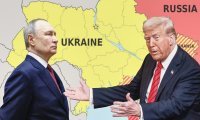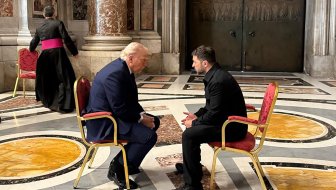The stone and marble factory Jadrankamen has a future and will continue operating regardless of possible bankruptcy proceedings against it, it was said after a session of the Economic and Social Council (GSV) on Wednesday.
After boycotting a GSV session some ten days ago due to a police intervention against protesting union activists and workers of the factory on the island of Brac, representatives of trade unions attended today's GSV session because Minister of the Interior Ranko Ostojic apologised in the meantime and bankruptcy commissioner Ivo Bucan, against whom Jadrankamen workers protested, resigned.
Jadrankamen workers still hope that bankruptcy proceedings will not be launched against their factory and they have submitted an objection to that effect to the High Commercial Court, said trade union leader Ozren Matijasevic.
"We hope that instead of bankruptcy, the factory's biggest creditors, the banks and the state, will appoint a management board to deal with the current crisis in Jadrankamen," Matijasevic said, adding that Prime Minister Zoran Milanovic had said that there was a market for Jadrankamen's products.
Labour Minister Mirando Mrsic said Jadrankamen had a future and that it needed a strategic partner, adding that talks were under way on the matter.
The GSV today also discussed the latest increases in prices of electricity and natural gas.
The trade union representative on the GSV, Mladen Novosel, said such moves required prior discussion at the GSV and that the social partners had the right to know why some prices had to go up.
"We were not given a satisfactory answer today as to why prices of electricity and natural gas had to go up by 20 and 22 percent, and not, for example, by five, seven or nine percent, and we expect that such things won't happen again," Novosel said.
Minister Mrsic said that prices of energy products in Croatia had not changed for years and that without the recent price increases the power supplier HEP would have incurred losses and that its further operation would have been jeopardised.
The GSV also adopted a programme of work for 2012, with representatives of the trade unions and employers expressing a wish to be more involved in the drawing up of new legislation.
As part of the regular rotation at the helm of the GSV, trade union representative Kresimir Sever was appointed GSV chair for a term of one year.


































